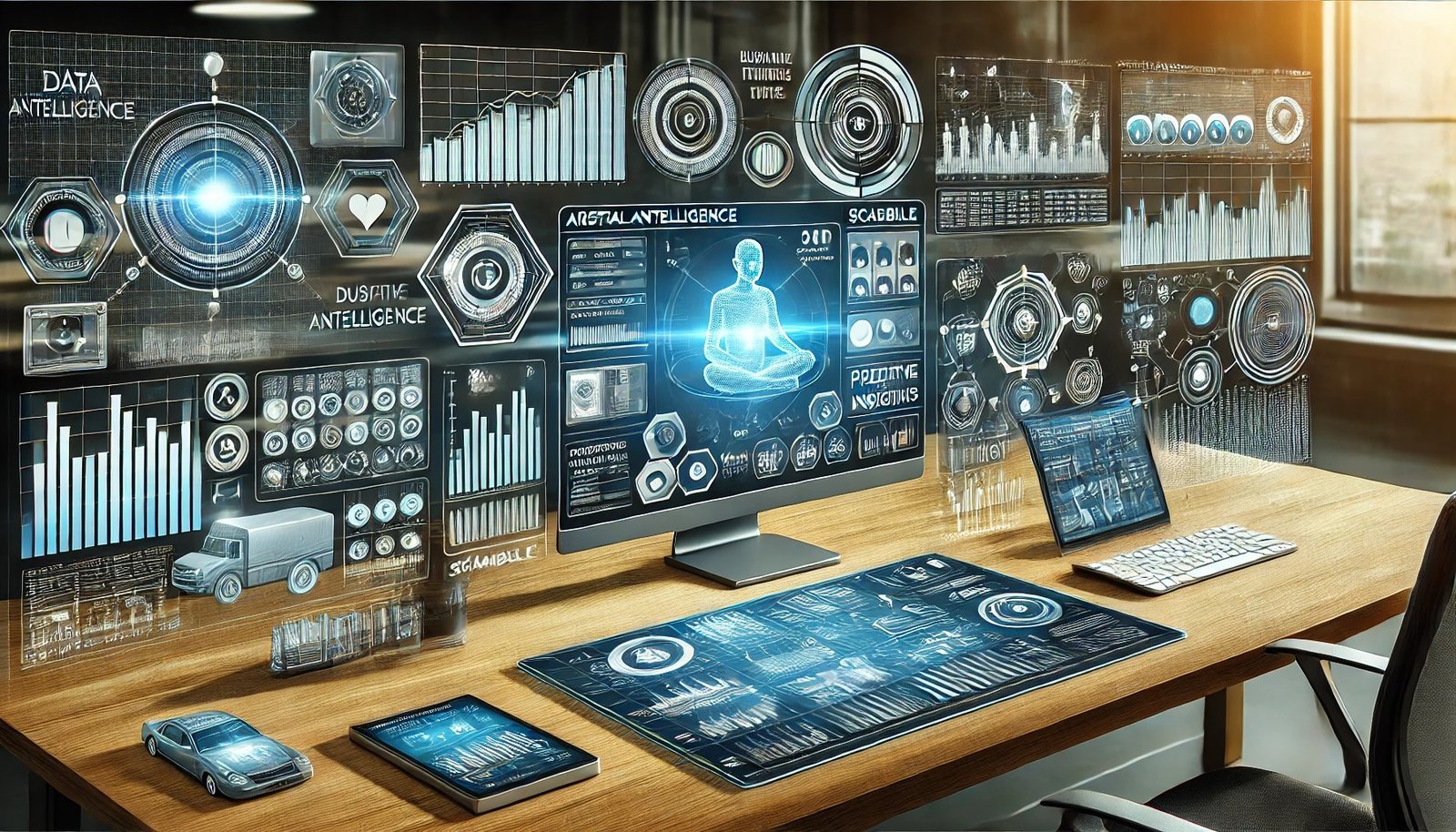Introduction
In 2025, enterprises face rapidly evolving demands — remote collaboration, data-driven decision-making, and digital-first customer experiences. To meet these challenges, businesses are turning to enterprise technology solutions that integrate speed, scalability, and security.
This article explores what enterprise technology solutions are, why they matter, and which tools are leading the way for organizations looking to grow, adapt, and thrive in today’s competitive digital landscape.
1. What Are Enterprise Technology Solutions?
Enterprise technology solutions refer to software, platforms, and infrastructure designed to support the operations, communications, and data needs of medium to large businesses.
These solutions differ from consumer-grade tools by offering:
- Advanced scalability
- Security compliance
- Role-based access
- Integration with legacy systems
- 24/7 uptime and support
2. Core Components of Enterprise Tech
🔹 Cloud Computing Platforms
Businesses now rely heavily on cloud providers like:
- Amazon Web Services (AWS)
- Microsoft Azure
- Google Cloud Platform (GCP)
Cloud solutions offer:
- On-demand computing power
- Global data access
- High reliability and backups
- Scalability for growth
The hybrid cloud is especially popular among UK-based enterprises, balancing regulatory compliance with global reach.
🔹 Enterprise Resource Planning (ERP) Systems
ERP software integrates internal business processes into one system.
Top ERP systems in 2025:
- SAP S/4HANA Cloud
- Oracle Fusion Cloud ERP
- Microsoft Dynamics 365
These solutions help businesses manage:
- Finance and accounting
- Human resources
- Supply chains
- Manufacturing operations
🔹 Customer Relationship Management (CRM)
CRM tools empower businesses to understand and engage customers across channels.
Leading CRM platforms:
- Salesforce
- HubSpot Enterprise
- Zoho CRM Plus
In 2025, CRM systems offer AI-powered predictions, sales automation, and omnichannel marketing capabilities — all in one dashboard.
3. AI and Automation in Enterprise Environments
🤖 AI-Powered Decision Making
AI tools now analyze customer behavior, sales trends, and operational efficiency in real-time.
Use cases:
- Predictive analytics for inventory planning
- Chatbots for customer service
- Employee attrition prediction
⚙ Robotic Process Automation (RPA)
RPA tools like UiPath, Blue Prism, and Automation Anywhere allow businesses to automate repetitive back-office tasks.
This results in:
- Lower operational costs
- Fewer human errors
- Increased employee productivity
4. Cybersecurity: A Top Priority in 2025
With rising ransomware attacks and data breaches, enterprise cybersecurity is no longer optional.
Key solutions include:
- Zero Trust Architecture
- SIEM Platforms (Security Information and Event Management)
- Cloud-native firewalls
- Endpoint Detection & Response (EDR)
Popular enterprise-grade cybersecurity tools:
- CrowdStrike Falcon
- Palo Alto Networks
- Microsoft Defender for Business
Data encryption, role-based access control, and multi-factor authentication are now standard practice across all sectors.
5. Collaboration & Remote Work Tools
Remote and hybrid work models remain the norm in 2025. Businesses are investing in unified communication platforms like:
- Microsoft Teams Enterprise
- Zoom Workspace
- Slack Plus
- Miro for Enterprise (virtual collaboration)
These tools integrate with document sharing, task management, and video conferencing to create seamless digital workplaces.
6. Data Analytics & Business Intelligence
Data is the new oil. Enterprises are leveraging BI platforms to make smarter decisions, faster.
Top tools include:
- Tableau
- Power BI
- Looker
- Qlik Sense
Features businesses use:
- Real-time dashboards
- Forecasting & trend analysis
- Department-level reporting
Advanced analytics allow CFOs, CMOs, and CTOs to align strategy with measurable results.
7. Scalable IT Infrastructure & DevOps
Enterprises require infrastructure that supports growth without downtime.
🔧 DevOps & Automation Tools
- Docker & Kubernetes for containerized apps
- GitLab CI/CD for deployment automation
- Terraform for infrastructure as code (IaC)
These tools allow IT teams to deploy faster, reduce bugs, and adapt to user demand with minimal manual intervention.
Conclusion
In 2025, enterprise technology solutions are not just a support function — they are strategic enablers of innovation, growth, and resilience. Whether you’re a multinational corporation or a scaling mid-sized business, the right combination of cloud services, automation, analytics, and cybersecurity can streamline operations and empower smarter decisions.
Businesses that embrace this shift will lead the future of digital transformation — efficiently, securely, and intelligently.
FAQs
1. What are enterprise technology solutions?
Answer: These are scalable and secure IT tools designed to support business operations, including cloud platforms, ERP systems, and cybersecurity solutions.
2. Why is cloud computing important for enterprises?
Answer: It enables flexible, scalable, and cost-effective access to computing resources, essential for digital transformation.
3. What is RPA in enterprise tech?
Answer: Robotic Process Automation automates routine business tasks like data entry, saving time and reducing errors.
4. How do enterprises protect against cyber threats?
Answer: Through layered security measures like firewalls, endpoint protection, encryption, and zero-trust frameworks.
5. Which BI tools are best for enterprise analytics?
Answer: Tableau, Power BI, and Looker are leading platforms offering real-time data visualization and reporting.















Leave a Reply